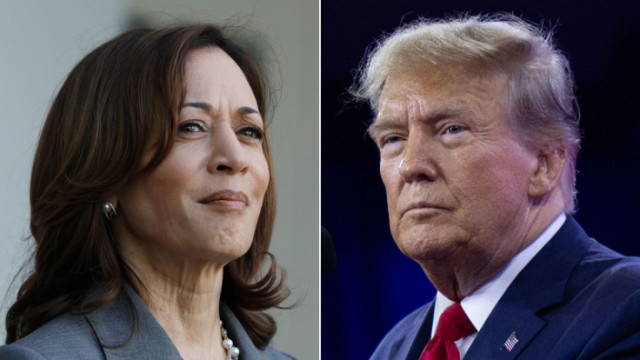As the United States' election draws near, the Vice-Chancellor of the University of Lagos (UNILAG), Prof. Folashade Ogunshola, says there are valuable lessons global audience, including Nigeria can learn from the electoral system.
She highlighted lessons as transparency, accountability and inclusivity in elections as key points.
The U.S. presidential election is scheduled to hold on November 5, with Donald Trump and Kamala Harris as the main candidates
Ogunshola, represented by Prof. Bolanle Oboh, Deputy Vice-Chancellor (Academics and Research), made this known at a 2024 U.S. Election event in Lagos.
The event organised by the U.S. Consulate General in collaboration with the University of Lagos had the theme: “Democracy in Action: Understanding the U.S. Electoral Process.”
Ogunshola said understanding the U.S. electoral process was crucial to foster democratic engagement and values including freedom of speech, the rule of law and the protection of individual rights.
“This should serve as a model for us all as we strive to enhance our democratic practices here in Nigeria.
“By observing how these principles are implemented in the U.S., we can better understand how to strengthen our electoral processes and foster a culture of active citizenship.
“It is our collective responsibility to ensure that our voices are heard and that we contribute to the democratic processes that shape our future,” she said.
She called for active involvement and promotion of democratic engagement on campuses.
This, she said, can be achieved through participating in student governments, engaging in debates and organising forums that encourage discussions on civic responsibilities and democratic processes.
Gabriel Babawale, Professor of Political Economy and International Relations, at the Department of Political Science, UNILAG said Nigeria’s political system was patterned after the American presidential democracy.
Babawale described Nigeria as a multiethnic, multilingual, and multireligious nation just like the U.S. known as a nation of immigrants.
According to him, America’s commitment to the principle of checks and balances in governance and ensuring that no arm of government intrudes on the functions of the other is unique.
Babawale noted that Nigeria needs to emulate parts of the American electoral system for economic growth and development.
He attributed the development of lack of trust as reason for diaspora voting not to take effect in Nigeria.
“We need a new institutional order that citizens will have confidence and trust in.
“It’s not impossible. We just need to have strong, efficient, and legitimate institutions that command trust,” Babawale said.
Mr Michael Ervin, Political and Economic Chief at the U.S. Consulate, said elections were about accountable governance.
“The biggest question that observers of the American democratic system, especially of the U.S. presidential elections always ask is about the electoral college.
“The U.S. election is not a popularity contest straight away. A candidate might win the popular vote but not the election. It has happened four times, most recently in 2000 and 2016,” Ervin said.
He noted that democracy was the best but not always easy or perfect.
“It’s very easy to fall into the trap of thinking safety and security is enough but a commitment to freedom and prosperity is also important,” Ervin said.




















